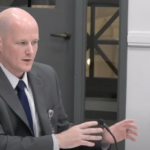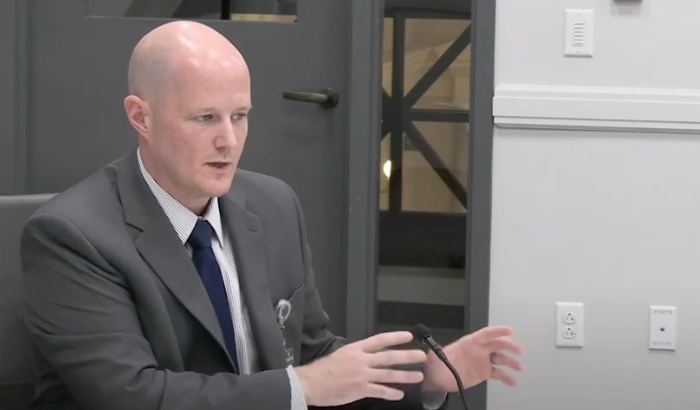
“We can get smaller businesses credits, we can make it easier for them to do business and to compete.”
This past weekend, some of the brightest minds in cannabis policy, research, commerce, and media gathered in downtown Providence, Rhode Island for the Parabola Center’s Anti-Monopoly Crash Course and the nonprofit’s annual fundraiser.
Both events were part of Parabola’s People Over Profits Anti-Monopoly conference, which was centered around big ideas from industry thought leaders, activists, and legislative players alike. With pre-recorded remarks provided by US Sen. Elizabeth Warren and a rousing speech by longtime Rhode Island state Sen. Josh Miller at the fundraiser, the event even attracted attention from beyond the immediate New England cannabis crowd.
On the ground in Providence, organizers saw a particularly rousing response to the section of the crash course taught by Victoria Litman, an adjunct Law Professor at Roger Williams University and affiliated researcher with the Project on Psychedelics Law and Regulation (POPLAR) at Harvard. Litman’s presentation, titled Using Tax Policy to Combat Greed, explored both present and potential future utilization of tax policies to combat anti-competitive business practices in both emerging and existing cannabis markets.
“Sometimes these excise taxes are thought about as a ‘sin tax,’” Litman said. “Some people have this idea of [a] cannabis tax … [which is] an example of the excise tax being imposed on the customer directly.”
Litman noted that while “[an] excise tax can also be imposed on the business itself on different levels of the supply chain depending on what a cannabis program looks like,” “sometimes … it gets passed along to customers in the form of increasing prices.”
Out of concern that excise taxes are being or will be passed onto consumers, the professor indicated a preference for a nuanced approach to excise tax policies.
“I think [there is] a balance here, because we’ve seen some [proposed federal] legislation that has really high excise taxes,” Litman said. “But I think that we want to make sure that we keep it somewhat low, because if not, then these businesses will have a hard time competing with the existing and legacy markets.”

She continued: “It also will reduce the chances that businesses pass it on to the customers. And again, this is important because this federal tax, whatever it looks like, will likely be on top of state and local tax. So if it’s too high, people will not enter into this legal market.”
Litman also spoke about corporate taxes in general as they apply to the cannabis industry: “Generally, right now we have a corporate tax rate of 21% of corporate income, but the actual effective tax rate of what people are paying can vary based on the industry. … When we think about the corporate tax rate, I’m gonna say this, and I’m gonna say it again—we can tax big businesses more.
“We can have a shifting excise tax. That says [if] you are a bigger business, we are going to make you pay more… We want cannabis businesses that care about patients. We want to discourage greedy conglomerates from entering the industry with the hope of sacrificing quality and safety, to gain as much profit as possible.”
That’s one way, Litman said, to compete with an emerging monopoly. She added, “If these businesses pass their increased rate onto customers through price increases, it will only help the smaller businesses compete on price.”
The professor also outlined the potential benefits of expanding access to tax credits to “incentivize certain behavior,” such as hiring “certain types of people” and acting in ways that are “environmentally beneficial.”
“We can get smaller businesses credits, we can make it easier for them to do business and to compete,” Litman told the crowd. “We can just make this up and write the law. … We can just give credits to equity-owned businesses, we can give credits to environmentally-beneficial businesses, we can just say, Hey, if you’re doing this activity, we’re going to give you a tax credit.
“That will reduce the effective tax rate on these businesses by reducing their liability—again, just making it easier for them to compete and to succeed. I would just say it can be really hard to single out tax policy because a lot of federal policies are interconnected.”
In closing, Litman emphasized to conference attendees that “community reinvestment and tax reinvestment matters.”
“We need to be careful how we think about federal cannabis policy with taxes,” she said. “We don’t want too high of a tax rate—that makes it really difficult for the new federally compliant businesses to compete.”
























